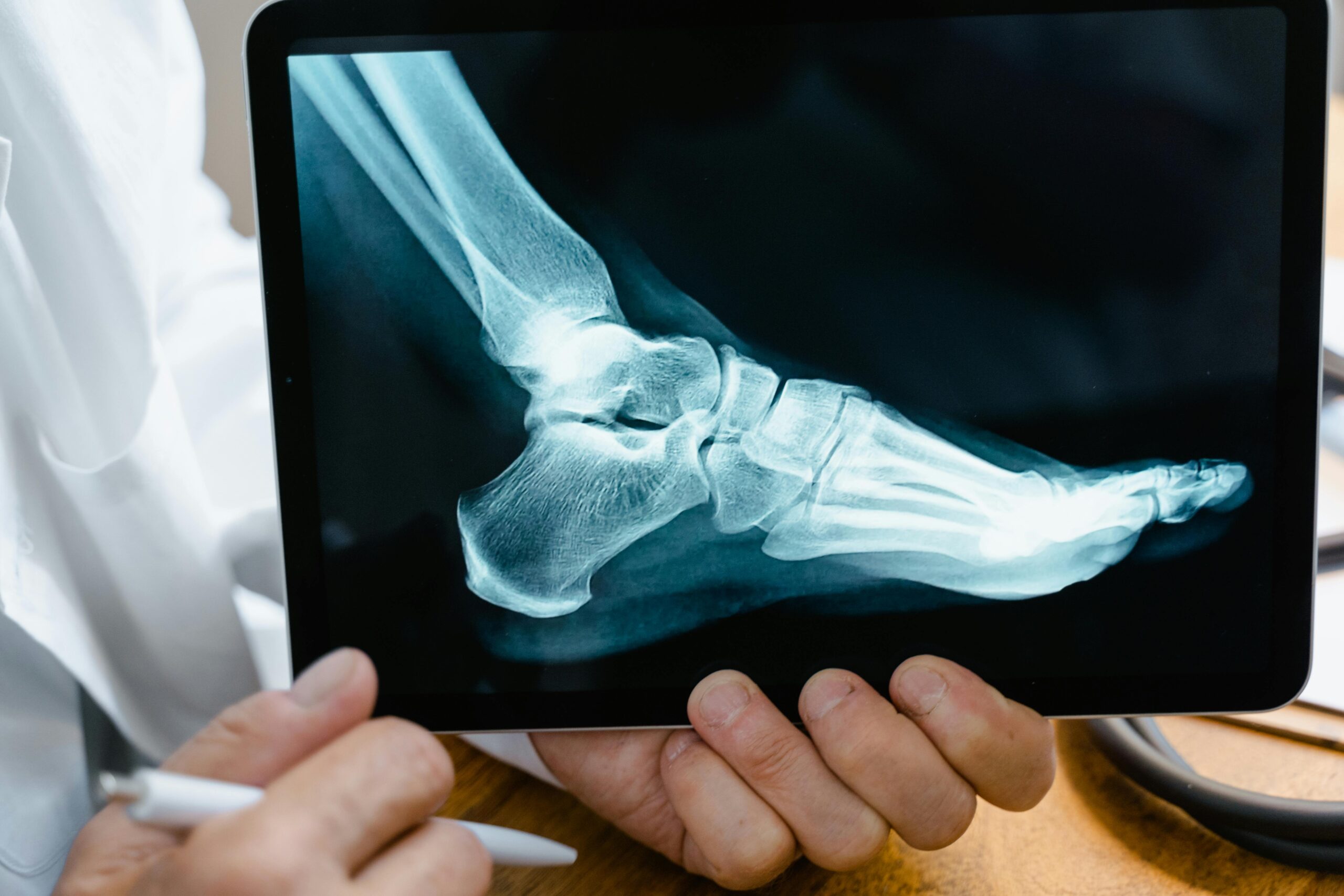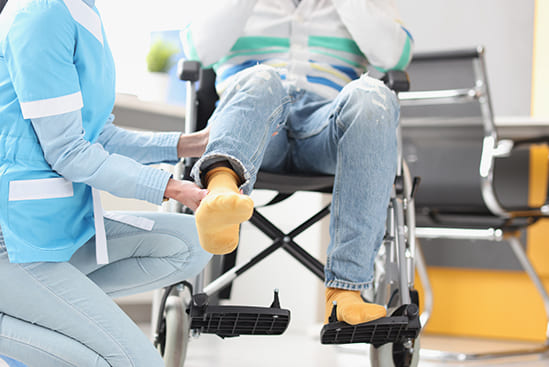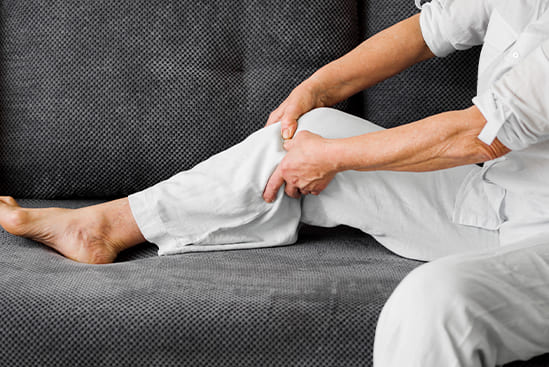
Home Physiotherapy, Sports Injuries
Introduction
Are you constantly feeling stiff, sore, or restricted in movement? Whether you’re dealing with post-workout tightness, stress-induced muscle tension, or pain from poor posture, finding the right solution can make all the difference. If you’ve been searching for physiotherapy near me to address tight muscles, you’re on the right track. Physiotherapy is not just for injury recovery, it’s a proven method to help release muscle tightness, improve mobility, and prevent long-term discomfort.
Tight muscles can stem from many causes: overuse, lack of stretching, sedentary lifestyles, or even emotional stress. The result? Restricted movement, pain, and potential injury. Physiotherapists are trained to identify the root cause of your tension and use a range of manual therapy techniques, exercises, and modalities to restore flexibility and relieve discomfort. Choosing a clinic nearby ensures consistent follow-up and personalised care tailored to your body and lifestyle.
In this article, we’ll explore how physiotherapy works to relieve tight muscles, what treatment techniques are commonly used, the benefits of seeing a local therapist, and how to maintain results long term. If you’re considering professional help for relief, start here: Homepage – Synapse Physiotherapy
Understanding Muscle Tightness
Muscle tightness is more than just an annoying ache. It can significantly affect your posture, energy levels, and daily activities. When muscles are chronically tight, they pull on joints and surrounding tissues, causing pain and limiting mobility. Without treatment, tightness can also lead to compensation patterns in the body, which often cause injuries in seemingly unrelated areas.
Types of Muscle Tightness
There are two main types of muscle tightness:
- Functional tightness: Where muscles become stiff due to a lack of movement, poor posture, or stress.
- Structural tightness: Where physical changes in the muscle (such as scarring or adhesions) cause restriction.
Physiotherapists assess which type you have and design a tailored treatment plan based on your needs.
How Physiotherapy Relieves Tight Muscles
When you visit a physiotherapy clinic, the first step is a thorough assessment. The physiotherapist will evaluate your posture, movement patterns, muscle tone, and strength. From there, they develop a program that might include the following:
1. Manual Therapy
Hands-on techniques like soft tissue massage, myofascial release, and trigger point therapy are highly effective in breaking up adhesions, improving blood flow, and releasing tension in overactive muscles.
2. Dry Needling
For deep muscle knots and stubborn tension, dry needling can stimulate muscle relaxation and reduce pain. It’s especially useful for chronic tightness that doesn’t respond well to stretching alone.
3. Stretching Programs
Targeted stretching routines help lengthen tight muscles and improve flexibility. Your physiotherapist will teach you how to stretch safely and effectively, often including both static and dynamic methods.
4. Strengthening Exercises
Tight muscles often occur alongside weak opposing muscle groups. Strengthening underactive areas (like glutes or core muscles) helps reduce the workload on tight muscles, creating better muscular balance.
Learn how our Strength & Conditioning Programme helps improve muscle function.
5. Postural Correction
Poor posture is a common cause of tightness in areas like the neck, shoulders, and lower back. Physiotherapists teach you ergonomic strategies and exercises to support correct alignment.
6. Heat or Ultrasound Therapy
These modalities increase circulation and promote relaxation in tight muscle tissues, preparing them for manual therapy or stretching.
Benefits of Choosing a Local Physiotherapy Clinic
When searching for physiotherapy near me, there are clear advantages to staying local:
- Convenience: A nearby clinic makes it easier to attend sessions regularly, which is crucial for progress.
- Personalised follow-up: Local therapists often build stronger rapport with clients, tracking progress closely and adjusting treatment when needed.
- Quicker recovery: The more consistent your sessions, the faster your muscles can release and restore optimal function.
- Ongoing support: Beyond treatment, your local physiotherapist can guide you on home exercises, posture correction, and long-term prevention strategies.
If you live in a city like Kuala Lumpur or Petaling Jaya, there are plenty of skilled physiotherapists available who specialise in muscle tension relief.
Who Can Benefit from Muscle Release Physiotherapy?
Relieving tight muscles isn’t just for athletes or those in pain. Physiotherapy can benefit:
- Office workers with tension in the neck, shoulders, or lower back.
- Active individuals dealing with post-exercise soreness or imbalance.
- Older adults looking to improve flexibility and movement.
- Students who spend long hours hunched over books or devices.
- Busy parents carrying children or heavy bags.
- Anyone experiencing chronic muscle tightness, even without a specific injury.
How Many Sessions Will You Need?
The number of physiotherapy sessions varies depending on the severity and cause of your muscle tightness. Some people feel relief after just one or two visits, while others may need several weeks of regular care. Your therapist will reassess your condition regularly to make sure you’re progressing and adjust your treatment plan as needed.
Preventing Muscle Tightness in the Future
Once your muscles are released and you feel more mobile, it’s important to maintain the results. Here’s how:
- Regular movement: Avoid sitting for long periods, get up and stretch every 30–60 minutes.
- Daily stretching: Maintain flexibility with short stretching sessions, especially before and after physical activity.
- Strength training: Build muscle balance by strengthening weak areas.
- Hydration and nutrition: Muscles need adequate water and nutrients to function well.
- Stress management: Tightness can be a physical response to emotional stress. Practices like breathing exercises, mindfulness, or light yoga can help.
Choosing the Right Physiotherapist Near You
Look for a clinic that specialises in muscle and soft tissue treatments, and check if their team includes experienced therapists who understand the demands of your lifestyle. Some clinics also offer integrated services like chiropractic care, sports massage, or clinical Pilates to complement your physiotherapy.
Reading reviews, asking for recommendations, and calling the clinic to ask about their approach are all good ways to ensure you choose the right partner for your recovery journey.
Frequently Asked Questions (FAQs)
1. Is it normal to feel sore after physiotherapy?
Yes, mild soreness is normal as your body adjusts to new movements and therapies. It usually resolves within a day or two.
2. Can I do stretching at home between sessions?
Absolutely. In fact, your physiotherapist will likely prescribe home stretches to enhance your recovery and maintain flexibility.
3. How do I know if my tight muscles are due to posture?
A professional assessment can determine if poor posture is the cause. Common signs include stiffness in the neck, shoulders, and lower back.
4. What happens if I ignore chronic muscle tightness?
Ignoring it may lead to imbalances, limited mobility, and compensatory injuries over time. Early intervention helps prevent long-term issues.
5. Can older adults benefit from physiotherapy for tight muscles?
Yes, older adults can greatly benefit by improving flexibility, balance, and mobility, leading to better overall quality of life.
Conclusion
If tight muscles are limiting your daily comfort or performance, it’s time to take action. Finding physiotherapy near me can be the key to unlocking long-lasting relief. Physiotherapists use proven techniques to release tension, restore movement, and prevent future issues, no matter your age or activity level.
Don’t let stiffness and discomfort hold you back. With the right treatment plan and local support, you can move freely again and enjoy a healthier, more active lifestyle.
Ready to take the next step? Book your appointment today or learn more about our About Physiotherapy Centre.
Tags :

Back & Neck Pain
Conditions such as stiffness, postural abnormalities and muscle overuse from prolonged desk work at the office or home is more prevalent than most would think. We provide the necessary tools to fix you up and educate you on ergonomics which can unload unnecessary stress.
- Spine & Core Rehabilitation
- Strength & Conditioning Programme
- Pain Management
- Biomechanical Assessment
- Sports Physiotherapy
- Group Class

Sports Injuries
Rolled ankles, jarred knees, impinged shoulders are few conditions in the plethora of sports injuries which can hamper performance and limit our enjoyment of sports. Physiotherapy not only treats the symptoms of these conditions but propels your overall fitness to greater heights.
- Strength & Conditioning Programme
- Pain Management
- Biomechanical Assessment
- Sports Physiotherapy
- Shockwave Therapy
- Group Class

Work Desk Injuries
Conditions such as stiffness, postural abnormalities and muscle overuse from prolonged desk work at the office or home is more prevalent than most would think. We provide the necessary tools to fix you up and educate you on ergonomics which can unload unnecessary stress.

Pre-Post-Surgical Conditions
Surgery involves going through preparation both before and after. Physiotherapists play a vital role in getting your body ready for surgeries with circulatory, breathing and strengthening exercises. After the procedure, let us be there for your recovery and rehabilitation, taking it one step at a time.

Scoliosis & Postural Abnormalities
The way we stand, sit, walk and sleep has influence over our posture and the overall balance of muscles controlling its alignment. A comprehensive screening can be done by our physiotherapists to detect abnormalities, which we will aid in correcting.

Neurological Conditions
Neurological disabilities such as stroke, nerve compression and neuropathies can be barriers for patients to live life to its fullest. We at Synapse are committed to help you overcome these hurdles by ensuring functional mobility and quality of life is at its optimum by providing the right treatment and exercises.

Osteoarthritis & Rheumatism
Joint degeneration and inflammation happens as the human body grows older, but that does not mean our way of life degenerates as well. Relief your joint pains with a joint effort together with your physiotherapist, who will provide pain-relief treatments and prescribe exercises for your wellbeing.

Conditions Relating To Elderly
Common conditions in the older age population include hips & knee pain, back & neck pain, osteoarthritis, rheumatism, fear of falling and many more. Aging and degeneration of bodily function is inevitable, but here at Synapse, we will help you live the best of your life.

Home Physiotherapy
We understand that some conditions or injuries can make it difficult to receive rehabilitation at our clinic be it mobility or transportation issues. Our objective is to provide you with the same high-quality physiotherapy services at home that you would receive in-clinic.
